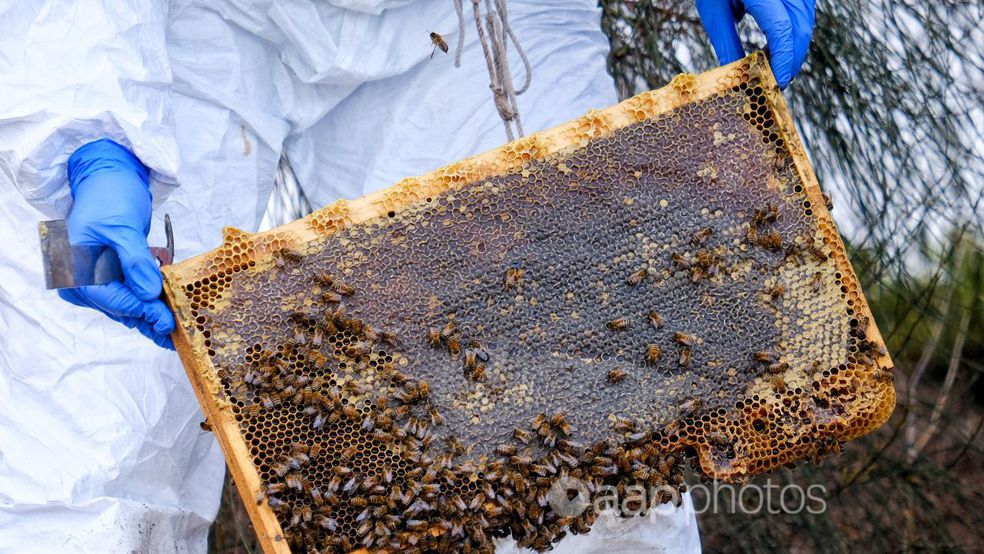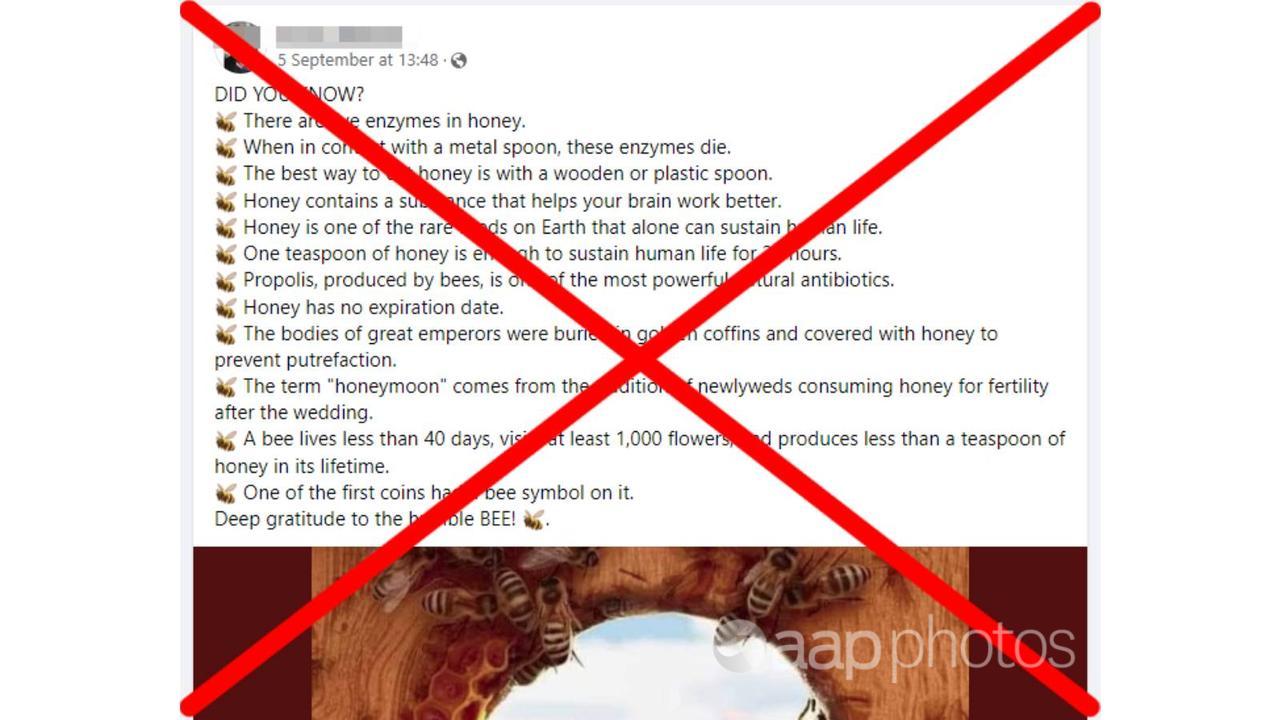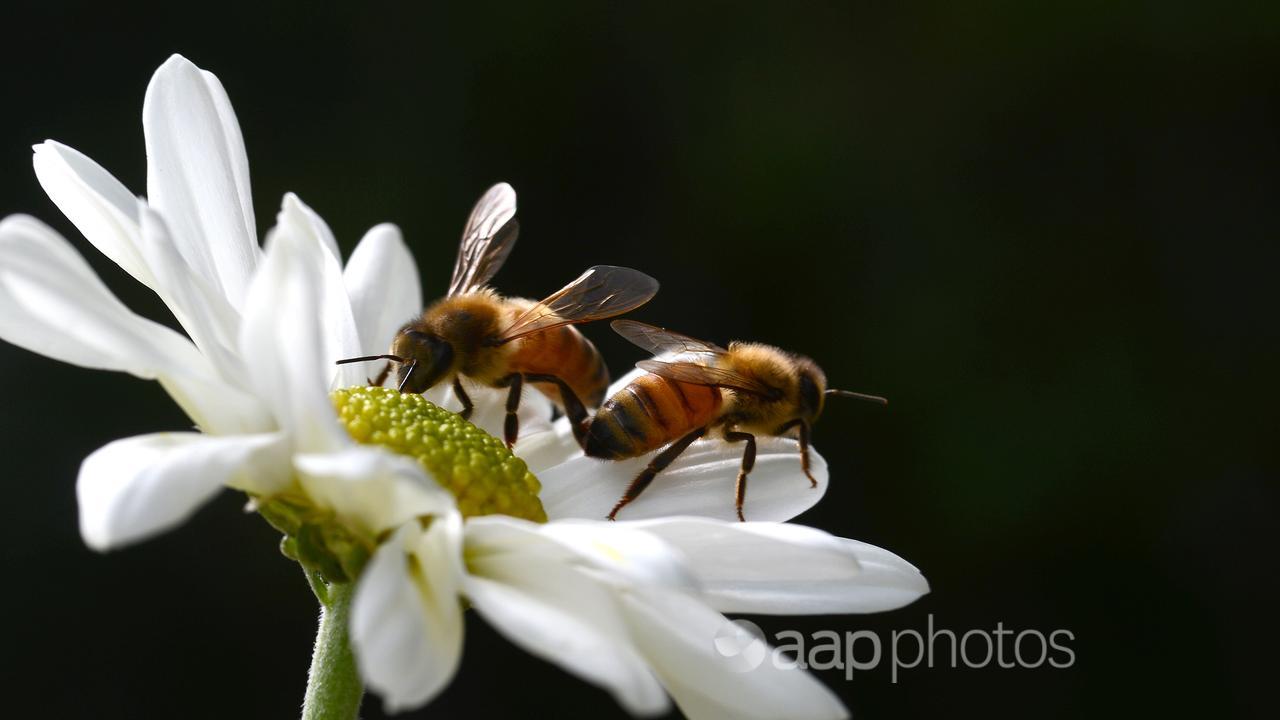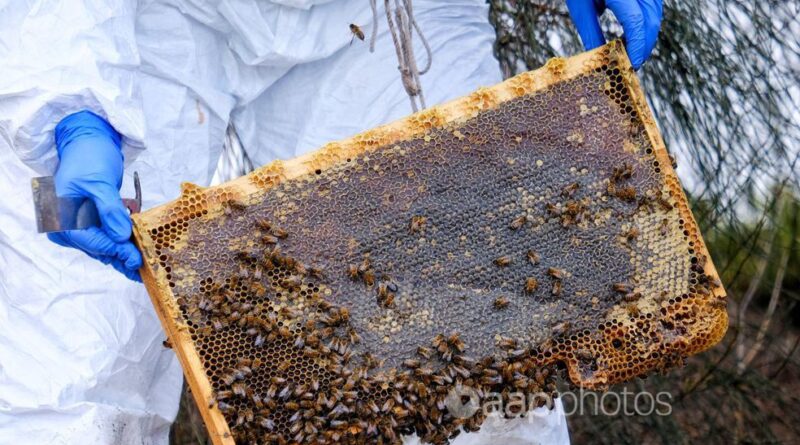Claims you can live on honey alone don’t stick to the truth
Soofia Tariq
September 16, 2024
WHAT WAS CLAIMED
Eating honey alone can sustain human life.
OUR VERDICT
False. Honey does not contain all the nutrients needed for long-term survival, and eating honey alone can lead to nutritional deficiencies.

AAP FACTCHECK – Honey is one of the only foods in the world that alone can sustain human life, social media posts claim.
This is false. Honey does not have all the nutrients humans need to survive long-term.
The claim appears in posts on Facebook featuring similar text starting with: “Did you know that:” followed by a list of points.
“Honey is one of the few foods on earth that alone can sustain human life,” the posts said.
They also claimed: “honey contains live enzymes. The metal spoon kills these enzymes. The best way to consume honey is with a wooden spoon, if not, you can use a plastic one”.
However, evidence and experts show those two claims are false.

Most adults need 2000 calories (8368 kilojoules) daily to sustain brain function, metabolism, and muscle activity, open-source publisher News Medical reported.
A 500-gram jar of honey contained about 335 calories (1401 kilojoules) per 100 grams, which meant a human would have to eat nearly one and a half jars a day to sustain themselves.
News Medical has also reported that the body needs six essential nutrients: vitamins, minerals, protein, fats, water, and carbohydrates.
Honey contains carbohydrates and water, but experts said it doesn’t have other nutrients needed for human survival.
Dr Kenya Fernandes, research fellow at the University of Sydney School of Life and Environmental Sciences, said honey had several scientifically proven health benefits, but humans couldn’t survive by only eating honey.
“While honey is nutrient-rich, it’s primarily composed of sugars (fructose and glucose) with trace amounts of vitamins and minerals, it’s missing essential nutrients that humans need to survive long-term, such as proteins, fats, and crucial vitamins like B12 and D,” Dr Fernandes told AAP FactCheck.
“It isn’t a complete food and cannot sustain human life alone over an extended period. Any diet that relies solely on honey would quickly lead to nutritional deficiencies.”
Asked if someone who only ate honey could die, Dr Fernandes said: “Yes – eventually! Even bees can’t survive on honey, they need pollen too.”
Dr Emma Beckett, a food and nutrition scientist and adjunct senior lecturer at UNSW, also said honey alone could not sustain human life.
“Honey is mostly sugars and water, with no fat and very little protein. Honey can have vitamins, minerals and bioactives, but the levels are low and varied,” she told AAP FactCheck
“Honey is great for sustaining bees, but honey alone cannot sustain human life.”

Dr Fernades said the claim that using a metal spoon would kill enzymes in honey, which were produced by bees, was “more myth than science”.
“Enzymes are proteins that can be affected by heat or pH changes, but there’s no evidence that simple contact with metal has any effect on their activity,” she said.
Dr Beckett also said there was no reason not to use metal utensils for honey unless you don’t like the taste.
“Metal won’t damage enzymes, but heating or acids can break them down, so you will have more enzymes in raw honey than in standard.”
Full Fact has also debunked the claim about honey alone sustaining human life. (AAP)



